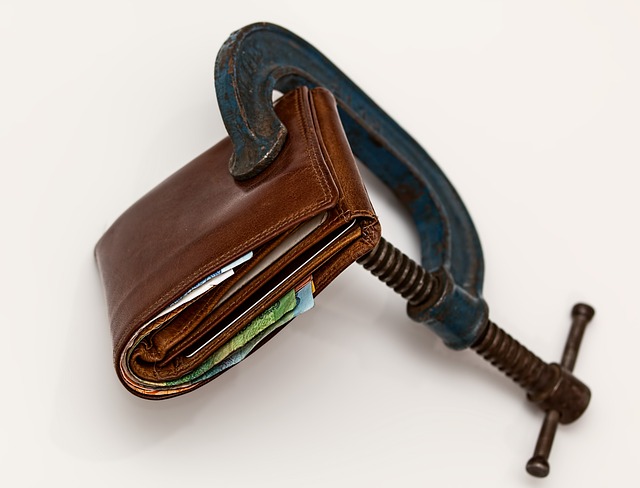Debt consolidation loans in South Africa streamline multiple debts into one with potentially lower interest rates and manageable repayments, improving credit scores. Before applying, assess your financial situation, create a budget, and check your credit score. Compare lenders offering tailored options by examining interest rates, fees, repayment terms, and eligibility criteria. Lower interest rates and fixed rates offer savings and clarity. Shorter loan terms decrease overall interest while longer terms lower monthly payments. Applications involve providing financial information for lender assessment of credit history, income, and debts. Successful consolidation requires disciplined budget management, prioritizing high-interest debt payments, automating repayments, and avoiding new debt.
Choosing the best debt consolidation loan in South Africa is a crucial step towards financial freedom. This comprehensive guide walks you through every aspect of the process, from understanding debt consolidations loans specific to South Africa, to key factors in selecting a lender and comparing offers. By assessing your financial situation and following effective debt management tips post-consolidation, you can make informed decisions and take control of your finances.
- Understanding Debt Consolidation Loans in South Africa
- Assessing Your Financial Situation Before Applying
- Key Factors to Consider When Choosing a Lender
- Comparing Loan Offers and Terms
- The Application Process and Required Documents
- Tips for Effective Debt Management After Consolidation
Understanding Debt Consolidation Loans in South Africa

Debt consolidation loans in South Africa offer a strategic way to manage multiple debts by combining them into one single loan with potentially lower interest rates and more manageable repayments. This type of loan allows borrowers to simplify their financial obligations, making it easier to stick to a repayment plan and improve their credit score over time. In the competitive South African market, several financial institutions provide debt consolidation options tailored to suit different borrower needs.
When considering a debt consolidation loan, it’s crucial to evaluate various factors such as interest rates, loan terms, and any associated fees. Lenders in South Africa often have different criteria for approval, so borrowers should carefully review the eligibility requirements to ensure they meet the necessary conditions. Understanding these aspects will empower individuals to make informed decisions when consolidating their debts, ultimately leading to improved financial health.
Assessing Your Financial Situation Before Applying

Before applying for a debt consolidation loan in South Africa, it’s crucial to assess your current financial situation. This step is essential as it helps lenders understand your ability to repay the loan and allows you to make an informed decision. Start by listing all your debts, including credit cards, personal loans, and any other outstanding payments. Calculate your monthly income and expenses to determine how much wiggle room you have financially.
Creating a budget will help you identify areas where you can cut back on spending. This process ensures that the debt consolidation loan you choose aligns with your financial capabilities, making it more manageable in the long term. Additionally, assessing your credit score is vital as it influences interest rates and loan terms offered by different lenders. A good credit score often translates to better deals, so take time to review your report and understand any factors affecting it.
Key Factors to Consider When Choosing a Lender

When looking for the best debt consolidation loan in South Africa, it’s crucial to be strategic and meticulous in your choice of lender. Several key factors come into play to ensure you secure a favourable deal that aligns with your financial needs. Firstly, consider the interest rates offered by different lenders. Debt consolidation loans typically have variable interest rates, so shopping around for the best rate can save you significant amounts over time. Compare not just the annual percentage rates (APRs), but also any additional fees and charges associated with the loan.
Secondly, assess the lender’s terms and conditions regarding repayment periods, loan limits, and eligibility criteria. Different lenders may have varying requirements for borrowers, so choose one that best suits your financial situation. Additionally, look into the lender’s reputation and customer reviews to gauge their reliability and transparency. Reputable lenders will provide clear information about all costs and charges involved, ensuring a stress-free debt consolidation experience.
Comparing Loan Offers and Terms

When exploring debt consolidation loans in South Africa, comparing offers and terms is crucial for making an informed decision. Start by examining interest rates, which can significantly impact the overall cost of borrowing. Lower interest rates mean less expense over time. Look for fixed interest rates that provide clarity on your monthly repayments.
Next, consider loan terms or the period you’ll be repaying the debt consolidation loan. Shorter terms typically come with higher monthly instalments but save on interest paid. Longer terms reduce monthly payments but can extend the overall cost of the loan. Evaluate your financial capabilities and prefer a term that aligns with your comfort level for repayments without causing financial strain.
The Application Process and Required Documents

Applying for a debt consolidation loan in South Africa involves several steps, and understanding the process is crucial before you begin. Lenders will assess your financial situation and credit history to determine eligibility. The application typically starts with filling out an online form or visiting a bank’s website, where you’ll be asked for personal details like your name, income, employment information, and existing debts. You may also need to provide proof of identity, such as a valid ID document, and recent financial statements, including bank statements or tax returns.
The required documents can vary between lenders, but generally, you should expect to share detailed financial information. This ensures that the lender makes an informed decision and matches you with suitable debt consolidation loan options. Some institutions might also request references or a co-signer, especially if your creditworthiness is a concern. Be prepared to present these documents clearly and accurately to streamline the application process for a successful debt consolidation loan.
Tips for Effective Debt Management After Consolidation

After securing a debt consolidation loan, effective management is key to reaping the full benefits. Firstly, create a detailed budget that accounts for all your expenses and income sources. This will help you allocate funds wisely and avoid unnecessary borrowing. Prioritize paying off high-interest debts first, as this can significantly reduce the overall cost of repayment.
Additionally, consider automating your loan repayments to ensure timely payments. Regularly review your financial situation and adjust your budget as necessary. Remember that while a debt consolidation loan provides a fresh start, it’s essential to cultivate responsible spending habits and avoid accumulating new debts. This discipline will help you regain control over your finances and ensure long-term financial stability.

